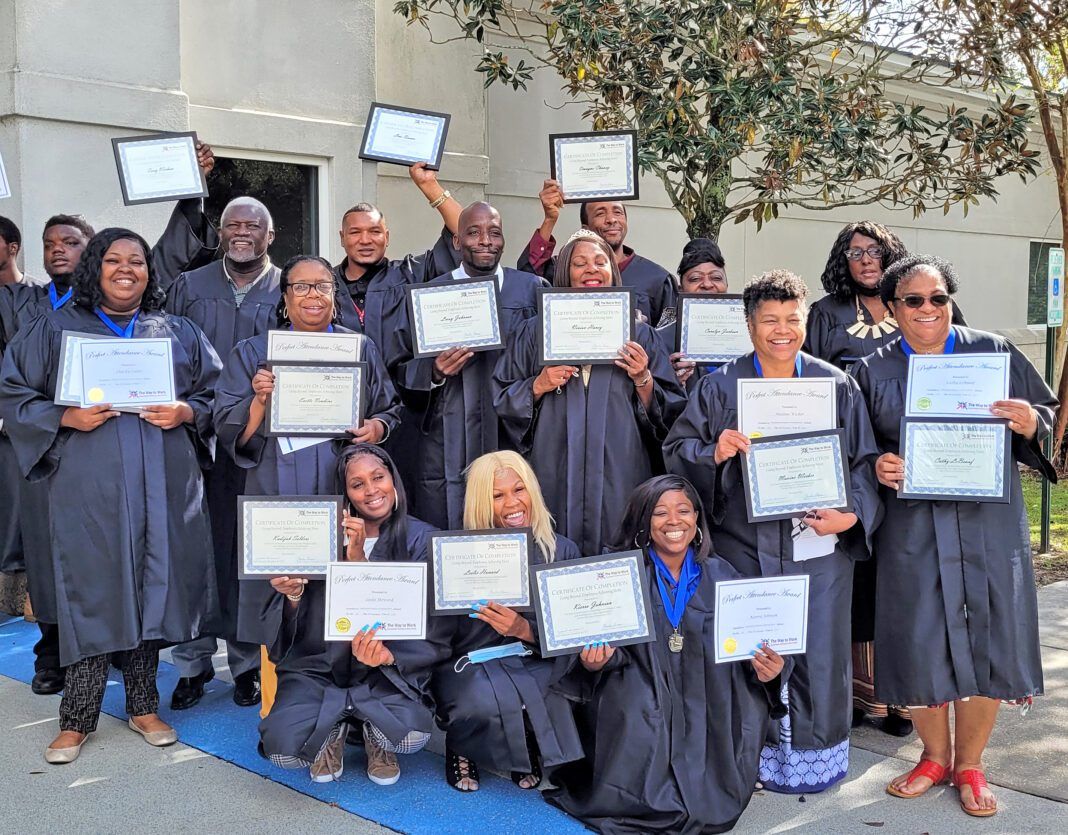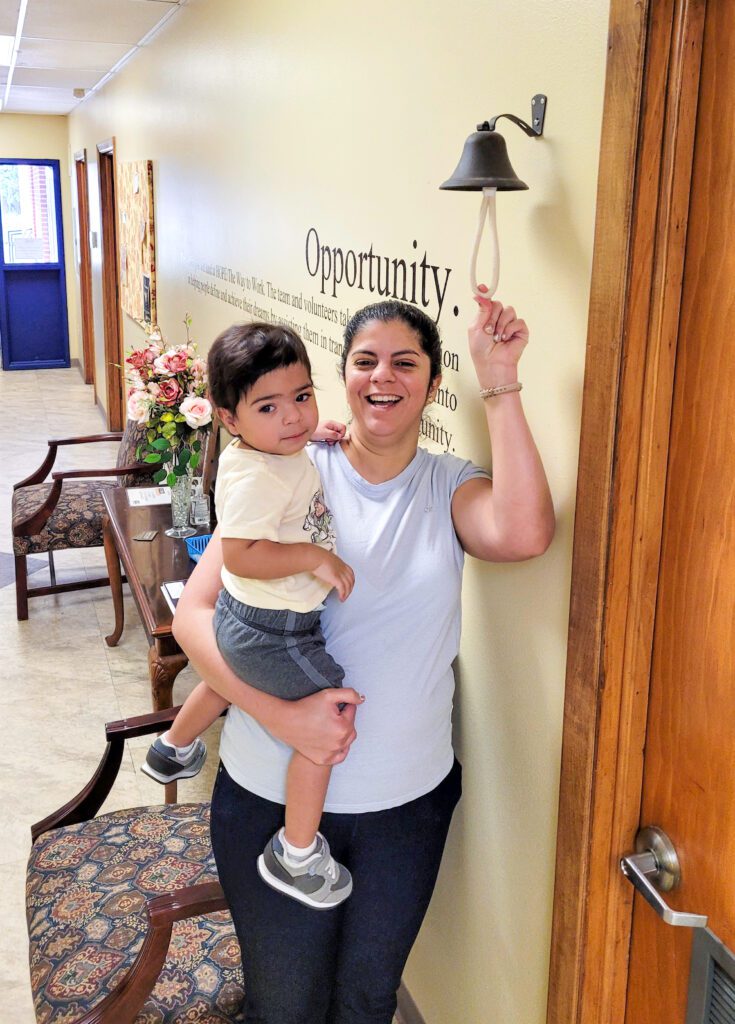
Giving Back: HOPE Ministries
The journey toward a higher purpose often comes with the risk of looking down. Looking down on what is perceived as lesser educations, lesser bank accounts, lesser jobs. But when HOPE Ministries president and CEO Janet Simmons encountered the organization in 2004, just one year after its advent as a food pantry and housing mentor program for Baton Rouge’s ALICE residents—those who are asset limited, income constrained, and employed—she appreciated its humble approach. Around the same time, the organization embraced a “client choice” vision for the food pantry, meaning that residents of the 70805 ZIP code could select the food they needed in a setting that looked like a grocery store, and had begun plans for various educational and employment programs. HOPE Ministries didn’t just bequeath its resources to those in need. It met them on a level plane, giving them the dignity and the tools they needed to climb.
This was especially important to Simmons, whose marketing background led her to corporate sales roles before she first joined HOPE Ministries as a volunteer coordinator. “The dilemma for me was figuring out what kind of work I could do that I believed in 100 percent,” she says.
Since then, Simmons and her team of fellow believers have seen the organization grow far beyond its origins. After Hurricane Katrina and Hurricane Rita, HOPE expanded its reach to adult education, and by 2009 was offering workshops to local—and now regional—corporations on the causes and effects of poverty to produce better managers. Just a few yars ago, in 2019, its campus opened The Way to Work Learning Center, including a computer lab and classroom spaces where career coaches work with clients on developing skills in conflict resolution and workplace behavior to sustain long-term employment. Businesses and corporations can benefit here, too, with classes offered to supervisors who seek to better understand the backgrounds of their employees raised in generational poverty, and help them remain successful at work.

The curricula for these workshops is written to reflect the education of clients who, according to vice president of advancement Cheryl Lott, often read at about a third- or fourth-grade level. This way, the information is better absorbed and more easily incorporated into everyday life. “Our corporate partners identified 16 skills we incorporate into the workshops to address the areas holding our low-income workforce back and preventing them from moving up,” Lott says.
In 2021, HOPE Ministries added yet another feature: Mr. Eddie’s Kitchen, a test kitchen named for beloved HOPE team member Eddie O’Connor, who passed away in 2020. “Guest chefs will come in and show clients how to safely prepare healthy meals from ingredients in the food pantry, and let them taste it during the process,” says Simmons. “We once had an older gentleman come in who had recently lost his wife and needed to learn to cook for his family. We had another gentleman come in who had never tasted squash before—he had it here for the first time, at age 67.”
HOPE Ministries also maintains a 12-bed raised garden on its campus, and partners with the mayor’s Healthy BR initiative to provide fresh produce to clients. For its 20th anniversary this year, the organization will even use the test kitchen as the grounds for its second Iron Chef Cook-Off Contest on May 2, another showcase of ingredients found in the Client Choice Food Pantry.
For Lott, this deep involvement with the greater community—which supplies nearly 400 volunteers throughout the year—is crucial to HOPE Ministries’ mission. “Many of our clients were the people performing what we found out to be essential jobs during the pandemic,” she says, “so as another part of our 20th anniversary, we’re hosting a program called ‘Essential Jobs of Baton Rouge.’ We’re partnering with WAFB to document local celebrities and business leaders performing an essential job for the day, whether nursing assistants or grocery store clerks or warehouse workers. Those should start airing in late summer and early fall, and will culminate in our 20th anniversary gala in October.”
In the meantime, the organization continues to serve its 12,000 to 15,000 annual visitors to the food pantry while providing employment guidance and coaching support, with clients earning Industry Approved Certifications going on to successful careers earning as much as $60,000 to $70,000 a year.
“We are so grateful to the Baton Rouge community and our partners through the years that have made it possible to get to the level where we are,” says Lott. “We’re excited to celebrate the past 20 years, and look forward to the next 20.” hopebr.org











